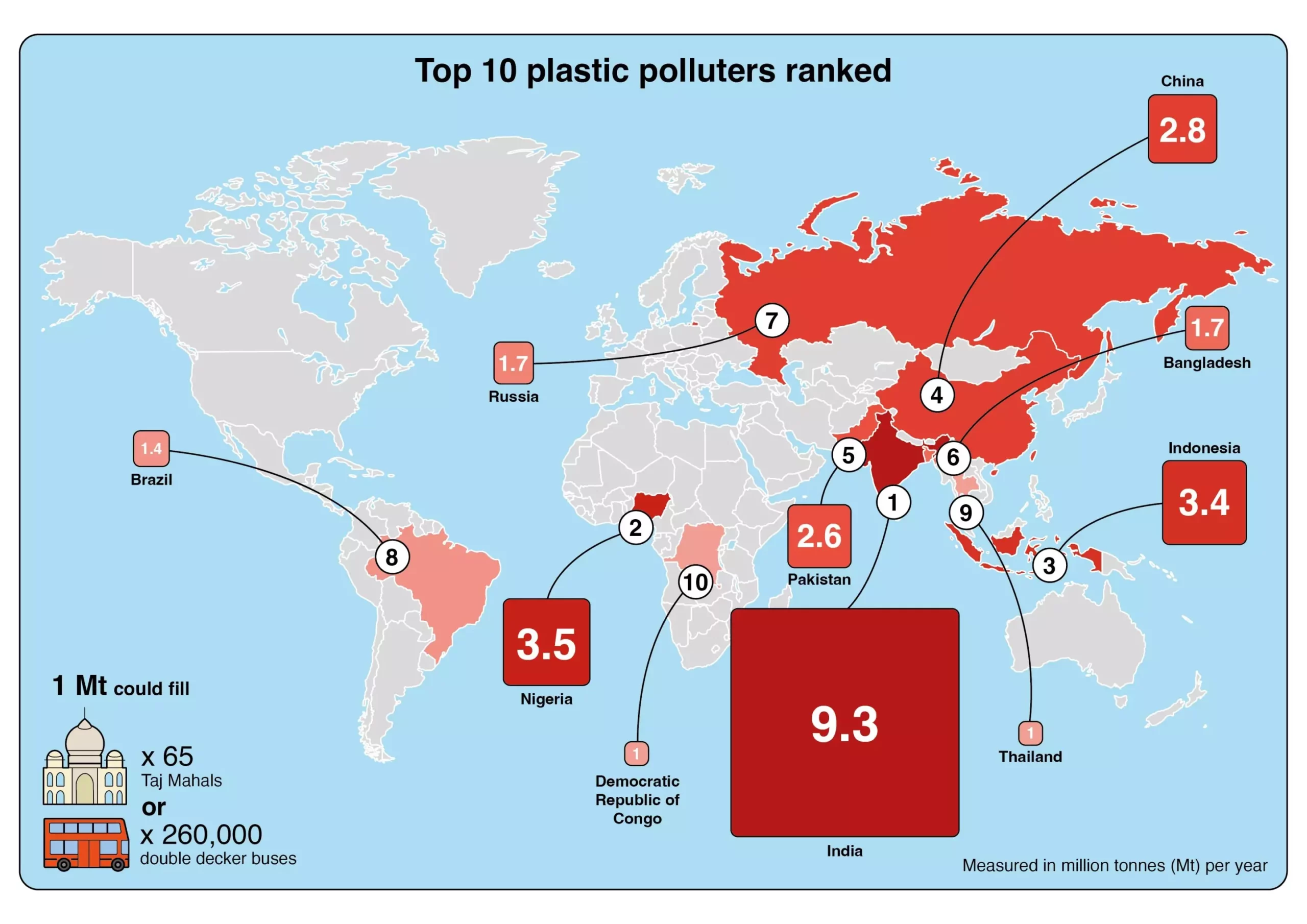Recent research conducted by the University of Leeds presents a significant and alarming overview of the dire state of global plastic waste management. Utilizing advanced artificial intelligence systems, researchers meticulously examined waste management practices across more than 50,000 municipalities worldwide. This groundbreaking study, published in the esteemed journal Nature, highlights an unexpected revelation: an astounding 52 million metric tons of plastic waste entered the environment in 2020 alone. To put this figure into perspective, if this plastic waste were laid out in a continuous line, it would encircle the globe over 1,500 times.
The implications of these findings are profound, particularly in terms of identifying the sources of plastic pollution. The study illustrates that over two-thirds of the world’s plastic waste stems from uncollected rubbish, affecting almost 1.2 billion people—about 15% of the global population—who live without the benefit of waste collection services. This stark revelation underlines the urgent need for improved waste management systems worldwide, particularly in developing regions.
A further disturbing finding of the study reveals that approximately 30 million metric tons of plastic—constituting 57% of all plastic pollution in 2020—was incinerated without any environmental safeguards. Open burning occurs in residential areas, on busy streets, and within unsanitary dumpsites, resulting in significant health risks. The researchers emphasize that burning plastic poses severe threats to human health, including potential neurodevelopmental issues, reproductive complications, and increased instances of birth defects.
The consequences of unmanaged plastic waste and its burning are felt most acutely by vulnerable communities, typically in low-income regions where waste disposal options are limited. As Dr. Costas Velis, a lead researcher in the study, stated, “We must prioritize addressing open burning and uncollected waste to protect lives from the impacts of plastic pollution.” This highlights an ethical dimension to the crisis, where the most disadvantaged populations bear the brunt of an ongoing environmental disaster.
One of the study’s significant contributions is the identification of emerging hotspots for plastic pollution, challenging previous assumptions about the largest contributors. Contrary to earlier beliefs that placed China at the forefront of plastic waste generation, India now takes the lead, emitting approximately 9.3 million metric tons of plastic annually, followed by Nigeria and Indonesia. This shift underscores the evolving landscape of global waste management and the pressing need for targeted policy interventions in these countries.
China’s reduced ranking is attributed to recent improvements in waste collection and processing, yet it remains essential to recognize that the root cause of plastic pollution is not solely about volume but also about the adequacy of waste management systems. Countries in the Global South, although generating lower overall plastic waste, often struggle with inadequate infrastructure, leading to disproportionate rates of pollution per capita.
The disparity in plastic waste pollution between the Global North and Global South is stark. While developed nations often have robust waste management systems, countries in the Global South face significant challenges. For instance, Sub-Saharan Africa, while currently contributing lower overall pollution, exhibits alarming per-capita pollution rates, suggesting that, in the near future, it could become a primary source of plastic waste globally. This impending challenge necessitates immediate attention and action from policymakers and stakeholders to bolster waste management infrastructure before the situation deteriorates further.
Moreover, the findings from the Leeds study serve as a pivotal baseline for future efforts to quantify and combat plastic pollution, akin to frameworks established for climate change emissions. Policymakers can utilize this data to devise comprehensive strategies addressing resource recovery, sustainable waste management practices, and a transition toward a circular economy.
In light of the critical findings and the urgency they present, researchers advocate for the establishment of a legally binding global agreement—a “Plastics Treaty”—to address the rampant issue of plastic waste. Dr. Velis stresses the pressing nature of the problem, contending that the open burning and dumping of plastics cannot be regarded as acceptable simply because it is out of sight.
Addressing the intricate relationship between plastic pollution and human health is essential, particularly in vulnerable communities lacking basic waste management services. By recognizing waste collection as a fundamental human right, governments can begin to enact policies that not only protect the environment but also uphold public health.
As we grapple with the realities of plastic pollution, it becomes increasingly clear that immediate, coordinated actions on a global scale are paramount. Failure to act could result in irreversible consequences for the planet and the health of billions. The research from the University of Leeds serves not only as a wake-up call but also as a critical resource for fostering informed policies and collective action against plastic pollution.

